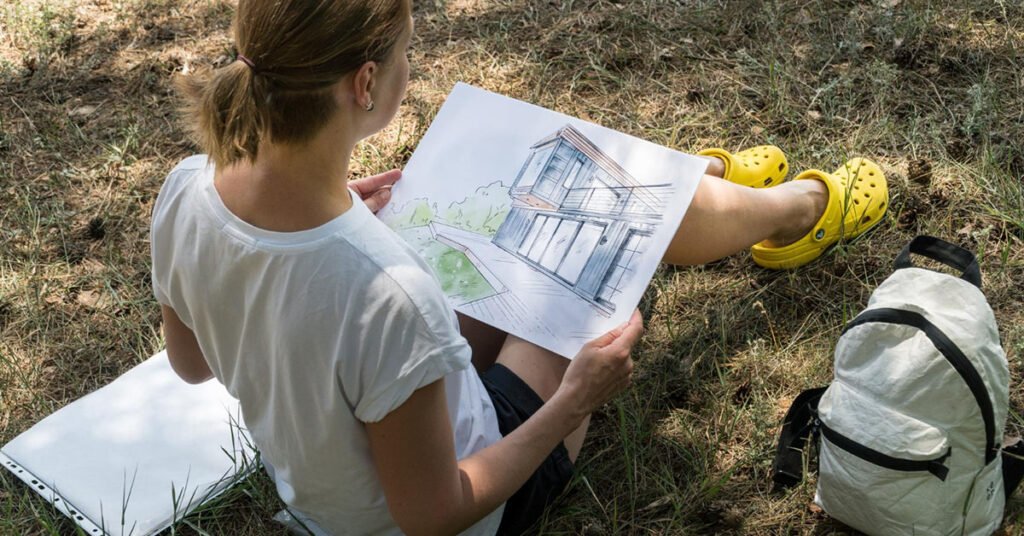Are you passionate about creating beautiful gardens, working with nature, and transforming outdoor spaces? If so, landscaping might be the perfect career choice for you! It’s a rewarding and fulfilling career when you can turn your love for the outdoors into a thriving business. In this comprehensive guide, we’ll walk you through how to become a landscaper and how to get started.
How to Become a Landscaper
Here are some steps you should follow to become a successful landscaper.
Define Your Passion and Skills
The first step in becoming a landscaper is to assess your passion for working with plants, your creativity in design, and your ability to work outdoors in various weather conditions. Identify your strengths and weaknesses to determine if this career path aligns with your interests and skills.
Gain Relevant Education and Training
While formal education is only sometimes required to become a landscaper, obtaining a degree or certification in landscape design, horticulture, or a related field can provide valuable knowledge and skills. Consider enrolling in courses or workshops offered by local colleges, universities, or botanical gardens to enhance your expertise.
Acquire Hands-On Experience
Practical experience is invaluable in the landscaping industry. Look for opportunities to gain hands-on experience by volunteering at community gardens, interning with established landscaping companies, or working part-time for a local landscaper. It will help you develop your skills and build your network within the industry.
Invest in Quality Tools and Equipment
As a landscaper, having the right tools and equipment is essential for delivering high-quality work efficiently. Invest in durable tools such as shovels, rakes, pruners, lawn mowers, and specialized equipment like trimmers and tillers. Quality equipment will not only improve your productivity but also enhance the professionalism of your services.
Develop Your Design Skills
A significant aspect of landscaping is creating aesthetically pleasing outdoor spaces. Hone your design skills by studying principles of landscape design, such as balance, proportion, and focal points. Experiment with different plant combinations, textures, and colors to develop your unique style.
Build a Portfolio
As you gain experience and expertise, build a portfolio showcasing your completed projects. Include before-and-after photos, design sketches, and client testimonials to demonstrate your skills and professionalism to potential clients. Your portfolio will be a powerful marketing tool to attract new business opportunities.
Establish Your Business
If you aspire to start your landscaping business, take the necessary steps to establish your enterprise legally and professionally. Register your business, obtain required licenses or permits, and set up accounting systems to manage finances effectively. Consider creating a website and social media profiles to promote your services and connect with potential clients.
Provide Excellent Customer Service
Building solid relationships with clients is crucial for success in the landscaping industry. Listen to your clients’ needs, communicate effectively, and deliver results that exceed their expectations. By providing excellent customer service, you’ll earn repeat business and receive referrals from satisfied clients.
Stay Updated on Industry Trends
The landscaping industry constantly evolves, with new trends, technologies, and techniques emerging regularly. Stay informed about the latest developments by attending industry conferences, participating in professional associations, and engaging in continuous learning. Keeping abreast of industry trends will ensure that you remain competitive and offer innovative solutions to your clients.
Commit to Continued Growth and Improvement
Finally, always continue learning and growing as a landscaper. Seek client feedback, learn from successes and failures, and continually seek opportunities for self-improvement. By staying committed to your professional development, you’ll position yourself for long-term success in the dynamic field of landscaping.
Read More: How To Become A Landscape Designer
The Takeaway
Finally, learning and growing as a landscaper requires passion, dedication, and a willingness to learn. If you follow these steps and invest in your education, experience, and business acumen, you can turn your passion for landscaping into a lucrative career. Keep true to your style, provide exceptional service to your clients, and never give up on creating beautiful outdoor spaces.



